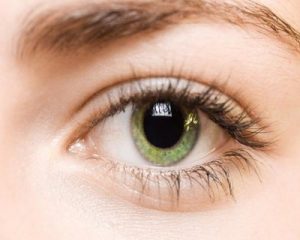- Home
- Editorial
- News
- Practice Guidelines
- Anesthesiology Guidelines
- Cancer Guidelines
- Cardiac Sciences Guidelines
- Critical Care Guidelines
- Dentistry Guidelines
- Dermatology Guidelines
- Diabetes and Endo Guidelines
- Diagnostics Guidelines
- ENT Guidelines
- Featured Practice Guidelines
- Gastroenterology Guidelines
- Geriatrics Guidelines
- Medicine Guidelines
- Nephrology Guidelines
- Neurosciences Guidelines
- Obs and Gynae Guidelines
- Ophthalmology Guidelines
- Orthopaedics Guidelines
- Paediatrics Guidelines
- Psychiatry Guidelines
- Pulmonology Guidelines
- Radiology Guidelines
- Surgery Guidelines
- Urology Guidelines
Poor diet caused Nutritional Optic Neuropathy in a young “fussy eater”: Case Report

A poor and nutrient deficit diet cause a young patient to lose his sight at the 14-year, according to a case reported in the in Annals of Internal Medicine. The case emphasizes the need to consider nutritional optic neuropathy should be considered in any patient with unexplained vision symptoms and poor diet, regardless of body mass index (BMI).
The risks for poor cardiovascular health, obesity, and cancer-associated with junk food consumption are well known, but poor nutrition can also permanently damage the nervous system, particularly vision. Nutritional optic neuropathy is a dysfunction of the optic nerve usually caused by malabsorption, drugs, or poor diet combined with alcoholism and/or smoking. It is rare in developed countries. The condition is potentially reversible if caught early. But if left untreated, it leads to permanent blindness.
Researchers from Bristol Eye Hospital, Bristol, United Kingdom report the case of a 14-year-old patient who first visited his family physician complaining of tiredness. Aside from being labeled a “fussy eater,” the boy had a normal BMI and took no medications. Tests showed macrocytic anemia and low vitamin B12 levels, which were treated with vitamin B12 injections and dietary advice. By age 15 years, the patient had developed sensorineural hearing loss and vision symptoms, but no cause was found.
By age 17, the patient’s vision had become progressively worse, to the point of blindness. The physicians investigated the patient’s nutrition and found vitamin B12 deficiency, low copper and selenium levels, a high zinc level, and markedly reduced vitamin D level and bone mineral density. The patient confessed that since elementary school, he had avoided foods with certain textures and only ate French fries, Pringles, white bread, processed ham slices, and sausage. By the time his condition was diagnosed, the patient had permanently impaired vision.
The case highlights the importance of proper nutrition and a balanced diet and may guide medical practitioners to take the correct decision while examining such cases.
For reference, click on the link

Disclaimer: This site is primarily intended for healthcare professionals. Any content/information on this website does not replace the advice of medical and/or health professionals and should not be construed as medical/diagnostic advice/endorsement or prescription. Use of this site is subject to our terms of use, privacy policy, advertisement policy. © 2020 Minerva Medical Treatment Pvt Ltd